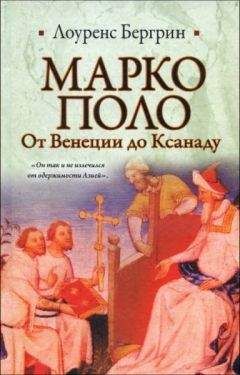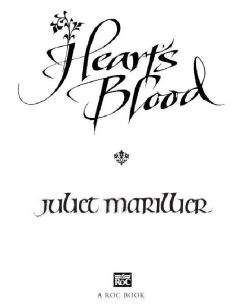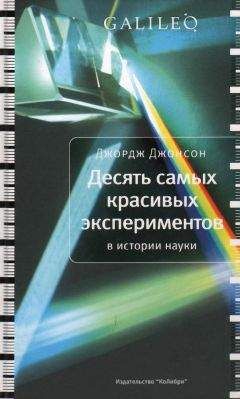Juliet Marillier - Wildwood Dancing
Paula made as if to speak—I silenced her with a look. Any comment she might make was likely to inflame the situation still further. In my pocket, Gogu was vibrating with anger.
“Cezar,” I said, “since you are so keen on propriety, may I suggest that we discuss this in private, just you and me, with one of my sisters as chaperone? I will not have Florica and Petru bullied.”
Cezar’s face was calm, the anger suppressed now, but I could see the dangerous look in his eyes. “My intention was to address you all together,” he said. “But I’ve changed my mind.
I’ll see you one at a time, starting with Stela. Alone. And we’ll do it now, before you can concoct a set of matching stories.”
“Are you accusing my sisters of lying?” We all looked at Tati in surprise. These days she rarely contributed anything to general conversation. She had certainly got Cezar’s attention.
He looked at her and his eyes narrowed. It was, perhaps, the first time he had noticed how pale and thin she was—how much she had changed.
“I cannot answer that until I hear what they have to say,”
he said.
“You’re not talking to Stela without one of us there,” I told 191
him. “She’s only five. And this is still Father’s house. You are not head of anything, Cezar, not while he’s still alive and no farther away than Constan¸ta.” I drew a breath, fighting for calm. “It’s after Stela’s bedtime. It’s completely inappropriate to subject her to this so late. You can talk to her tomorrow with me present—or, better still, with Aunt Bogdana there as well.
Let us see how prepared you are to bully and intimidate us in your own mother’s presence—”
He lifted his arm; his hand was poised to strike me. As one, my sisters drew in their breath in a shocked gasp. Then, surprising all of us, Daniel took two long strides across the kitchen and interposed his large body between my cousin and me. Cezar lowered his arm and I stepped back. Nobody had uttered a word.
“Tati,” I said, “will you take Stela up to bed, please? Florica, Petru: you are excused for the night. It’s been a long day, and you need your rest. Paula, Iulia: please clear away these platters and glasses before you go upstairs. Florica will want everything tidy for the morning.”
Cezar had turned his back; his shoulders were tight.
“Thank you,” I said to Daniel. He had retreated to the doorway, his eyes wary. I imagined that not even a strong young man would gladly cross Cezar. “I don’t know if the hunting party is going out again tonight, but I would ask you and R˘azvan to give me a little time to speak to my cousin in private.
You can wait outside the door.”
They obeyed. My sisters cleared the table rapidly, bearing cups and platters away for washing and drying in the scullery.
While they were close at hand but out of earshot, I took the opportunity to speak, addressing myself to Cezar’s back.
192
“You would have hit me.” I could hear how cold my voice sounded, not at all the best thing to placate him. I couldn’t help it. “Any man who attempts that loses my respect immediately, Cezar. My father would never have raised a hand against a woman. Nor, I’m certain, would Uncle Nicolae. What is it that makes you hate so?”
“I don’t hate you, Jena.” His tone was constrained. He did not turn. “Quite the contrary. But you try me hard sometimes. I know you want to protect your sisters and your servants—that is admirable, as a general sentiment. But if one of them is concealing something . . . if one of them is in league with these de-structive powers . . . I cannot believe that’s true, but I have to investigate the rumors. If the worst comes to pass, and someone in my own household has assisted these demonic folk, I must use what information they can give me to root out the evil—to destroy it once and for all.”
I was so angry I could hardly speak. “If you’re not careful,”
I said, “your hatred will eat you up, Cezar. I don’t understand it. It has changed you so much that I hardly recognize you anymore. I know how terrible Costi’s death was for you. But it was so long ago. You have your own estate to look after, your community to watch over, your life to lead. It is frightening to have the Night People in our forest. It is terrible that Ivona died, and troubling that folk have lost livestock. But you’re a leader—
you should be setting an example, not charging forward with the scent of blood in your nostrils and blind hatred in your heart. No matter how cruel the blow of losing your brother, it should never have made you lose your sense of what is right.”
He did not answer for a long time, just turned to stare at 193
me. It was as if I were the one who had almost struck a blow.
Eventually he said, “You can’t understand. You can’t know what it’s like to be offered something and for it to seem as if you’ve been given it, and then to find out it’s all a sham—that what you believed was a wonderful gift is worthless, cold, a dead promise. To pay an impossible price and get dross disguised as treasure; that is the cruelest thing. A leader, me?
Hardly. Folk follow me because I’m the best they’ve got. That’s not saying much in a place like this. Yes, I’m angry. I want the truth—and when I have it, I’ll use it to destroy those who tricked me, those who played the most evil joke in the world on me. I will tear them apart, limb from limb, and then I will destroy their forest so that they can never return to haunt me. I will drive them even out of my dreams.”
“Evil joke?” I asked, my voice diminished to a thread. “What joke? What are you talking about?”
“Forget it, Jena,” said Cezar. “I don’t want to discuss this further tonight. In the morning I’ll hear what you have to say, each of you in turn. I’ll know if anyone’s lying. I won’t have the community intimidated by the forces of the forest, and I won’t have my household cursed and polluted by association with Dr˘agu¸ta the witch and her henchmen. Night People or not, she’s the one who is behind all this. She did it. She drowned Costi. She’s never let me forget that, not for one instant. People think life goes on after these things, that folk recover and get over it, that everything doesn’t change. That’s wrong, Jena. It never goes away. It won’t go away until I make it go. It won’t leave me until I crush it completely.”
Iulia and Paula had finished putting away the dishes; now 194
they hovered in the doorway, waiting for me. Thank heaven for my sisters. I could forgive their small failings instantly, as long as they were there when I needed them. I put my hand around Gogu, inside my pocket. He was tensed up into a little ball, deeply distressed. “I don’t think I understand,” I told my cousin. “I’ve always believed we should try to put bad things behind us—not to forget them, but to learn from them and make the best use of that learning in our lives. If you can’t do that, you shouldn’t blame Dr˘agu¸ta or the folk of the forest. It’s your life—the only one who can live it is you. Now I’m going to bed, Cezar. If you ever try to hit me again, I will tell my father. And I’ll tell Aunt Bogdana, as well. Once I might possibly come to forgive. Twice will ensure you never regain my good opinion.”
In the quiet of our bedchamber, Stela was tucked under her quilt, almost asleep. There was no sign of Tati.
“Stela?” I crouched down by my little sister’s bed. “Where did Tati go?”
“I don’t know.”
“Jena.” Paula turned solemn eyes on me. “Her outdoor cloak’s gone.”
My stomach dropped; I felt sick. I thought of Tati’s wan, desperate appearance over these last days; her odd trips out into the forest; the way she seemed to drift along on the edges, as if she were not really part of our family anymore. I had told her about Tadeusz. I had told her about Dark of the Moon. “I think I’d better go and see if she’s all right,” I said as calmly as I could while my heart raced with terror. “I’ll just settle Gogu down first.”
195
I poured water into his bowl. My hands shook so much that the stream spilled over the rim.
“Jena,” said Iulia, “where do you think she’s gone? Why are you looking like that?”
“Like what?” I fished Gogu out of my pocket and set him by the water dish.
No, Jena! No.
“You look terrified,” Iulia said.
“I don’t want her to get in Cezar’s way. You saw what kind of mood he’s in. I’ll just slip out and bring her back.”
Jena, don’t go. Don’t do this.
“It’s Dark of the Moon,” Paula said. “You don’t think she might be planning to—?” She was not quite prepared to put my worst suspicion into words.
“Of course not,” I lied. “She doesn’t even know where to go; none of us do.” Call to me and I will take you there. “I’d better go now. Keep an eye on Gogu for me, will you?”
Take me with you. Jena! Don’t go without me!
I made for the door before the frog could leap onto my shoulder. I knew that if I picked him up again, I would find it impossible to leave him behind. “I shouldn’t be long,” I said, snatching my cloak from the peg where it hung. “Just go to sleep. I’ll see you in the morning.”
I imagined I could feel the horrified eyes of my sisters on my back as I went out. I heard a little thud as Gogu leaped from the table and made to follow me. I shut the door before he could reach it. If Tati was doing what I suspected, my only choice was to follow her, but I would not risk the safety of my little wise friend as well as my own.
196
I wanted to run, to find her as quickly as I could before it was too late. But I went cautiously, sidling from one corner to another, constantly watchful. If I drew Cezar’s attention, I would have to find an excuse for creeping about at night in my outdoor cloak, and then retreat to the bedchamber without my sister. There was no map to follow, no logic to choosing where I might look. An instinct I had not known I possessed drew me down one staircase and up another, past Father’s workroom, along a creaking gallery, then down the back way to the chamber that had once been our storeroom and was now swept bare and clean, waiting for the night of Full Moon.
The castle was dark. I had grabbed a candle before I went downstairs, but its feeble flickering did little to illuminate the cavernous spaces and shadowy corners of Piscul Dracului. I walked the length of the big chamber, the pillars rising into darkness on either side, the floor faintly gleaming as my small light passed over it. I went up a set of stone steps at the far end.
From here it was possible to enter a musicians’ gallery set above the main chamber, or to climb still further to an open terrace looking out over dense forest. With the moon hidden, there would be nothing to see tonight. “Tati,” I whispered, “where are you? Don’t be gone already—please, please. . . .”
The door to the terrace was ajar, its chain unfastened and dangling. So much for Cezar’s precautions. I crept through and ascended another flight of steps to emerge on the stone terrace.
The night was pitch-black and cold enough to freeze the breath the moment it left the body. I hugged my cloak around my shoulders, lifting the candle in a feeble attempt to light the darkness. “Tati? Are you here?”
197
There was a sudden movement by the parapet wall. She was standing close to the barrier, her face a pale oval in the fit-ful light, her eyes big and wild. The blue cloak shrouded her figure completely; her feet were in soft slippers. My sister was not alone. Beside her stood a tall, black-caped figure. It was not Sorrow. It was not Tadeusz. Those ruby lips, that snow-white skin, that elegant bearing, belonged to the woman of the Night People: the haughty Anastasia.
“Tati,” I gulped, “come inside. You can’t go. It’s too dangerous.” My voice sounded tiny—a child’s, ineffectual and meaningless.
Anastasia smiled, showing her unusual teeth. The effect was deeply troubling. “Take my arm, Tatiana,” she said, and her voice was as musical and as haunting as her brother’s, if brother he was. “I will lead you across. Sorrow is waiting for you just beyond the margin. Your sister is wrong. It’s perfectly safe. You’re women now—you are entitled to this.”
“No!” I cried out. “Tati, don’t!” I could see the longing in my sister’s eyes; Sorrow’s name had brought it sharply to life.
As for me, I felt the urge to move forward, to obey the coaxing voice and follow wherever Anastasia bid me. I yearned to go. I needed knowledge. What she had said about being entitled warmed me. In her world, there were no men like Cezar to dismiss my aspirations and scorn my quest for independence.
“Come with us, Jenica,” Anastasia purred. “My brother waits to show you the mirror. It’s just on the other side. Come, take my hand.”
I hesitated, remembering the small, wise voice of Gogu 198
raised in desperate protest. No, Jena! When had he ever been wrong?
“You waver,” the red-lipped woman said dismissively. “You are too cautious, like an old woman. Come, Tatiana.” And, as I watched, Tati slipped her arm through Anastasia’s. They moved away, beyond the small circle of light my candle cast on the cold stones. The portal could be anywhere. They might simply vanish; my sister might never come back. I imagined her pale and lifeless like Ivona, with the livid mark of a bite on her neck. I drew one long, uneven breath and launched myself after them.
199
Chapter Nine
The candle went out, and I was blind. I stumbled along the terrace, hoping I would catch them before they escaped my reach.
Surely this was too far—there should be a wall. . . . Groping before me in the darkness, I touched something chill as winter: a thin-fingered, long-nailed hand. I clutched it, reminding myself to breathe. A moment later we were falling, falling, so far down that I knew our landing would be in a tumble of crushed flesh and broken bones. I screamed, but my voice drifted into nothing; instead, the cold air was full of the cries of strange birds, an eldritch music of night. I squeezed my eyes tightly shut, waiting for the ground to slam into my body.
I landed gently, my feet on a soft surface, my eyes still closed. From the distance came a sound of faint music. I opened my eyes.
We were by T˘aul Ielelor, on the path to Dancing Glade.
There was the avenue of tall trees that led up to the sward; there was the little sandy shore where our boats would glide 200
in to let us out. The lake was frozen over. Tonight its surface did not glimmer, but lay sullen and dark beneath the willows.
Up in the trees, lanterns still hung, but their forms were changed: in place of beetle, bird, and butterfly were twisted forms of things not quite right—a cockroach with elongated teeth; a child with grimacing features and stunted limbs; a death’s-head; a worm-infested apple. The light they cast was dim and odd, rendering the landscape a greenish purple. Anastasia’s pale face was skull-like and my sister’s a terrified mask.




